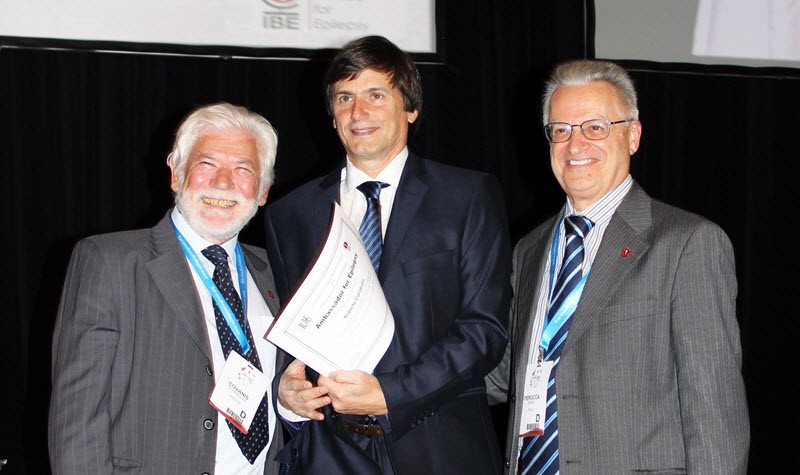
- Details
- ICNA
- News
- Hits: 677
Roberto Caraballo graduated from Medical School of the University of Buenos Aires, Argentina, and received his training in pediatric neurology at the Pediatric Hospital Pedro de Elizalde in Buenos Aires under the mentorship of Dr. Natalio Fejerman. In 1988-1989 he did a visiting fellowship at the Reparto di Neurosichiatria Infantile of the Ospedale Borgo Roma, University of Verona, Italy, under Prof. Bernardo Dalla Bernardina with whom he has a continued close scientific collaboration. He did a further training at the Seizure Unit of Miami Children's Hospital, Miami, USA directed by Dr. Michael Duchowny and in refractory epilepsy at the Reference Center for Refractory Epilepsy at Ghent University Hospital, Belgium directed by Prof. Dr. Paul Boon. He started working as a pediatric neurologist/epileptologist at the Pediatric Hospital J.P. Garrahan in Buenos Aires in 1990 and is currently chairman of the Division of EEG and Video Monitoring and Coordinator of the Refractory Epilepsy Clinic at the Department of Neurology at the same hospital.
Dr. Caraballo has published more than 120 peer-reviewed articles and 46 book chapters and was coauthor of 6 books contributing to the knowledge on and recognition of many different epileptic syndromes, mainly benign focal epilepsy in infancy, childhood and adolescence focusing not only on electroclinical features, treatment, and outcome, but also on genetic aspects. He has also participated in consensus groups on the ketogenic diet, on the electroclinical definition and therapeutic management of epileptic encephalopathies, and on the global management of refractory epilepsy, such as Rasmussen encephalitis, mesial temporal lobe epilepsy secondary to hippocampal sclerosis, and focal cortical dysplasia.
Among his teaching activities, Dr. Caraballo is in charge of the practical works in the course of pediatric neurology at Medical School of the University of Buenos Aires and was a faculty member of at the Venice International School of Neurological Sciences for the international course on epilepsy and for the Latin American Summer School of the ILAE.
Dr. Caraballo worked for the Panamerican Health Organization (PAHO) as an advisor on epilepsy in 1999 and as a local investigator in Argentina for International Program "Epilepsy out of the Shadows", of the WHO-PAHO, ILAE, and IBE between 2001 and 2003. Within this latter framework he carried out a pilot project in Gualygualchú, Argentina, to raise awareness of epilepsy among the general population through the education of priests and teachers. He was a member of the Commission on Pediatrics of the ILAE between 2001 and 2005 and currently participates in the commissions on Neurophysiology and on Autism of the ILAE.
He has been a member of the editorial board of Epilepsia since 2010 Currently, Dr. Caraballo is president of the Argentine League against Epilepsy for a second term and member of the ICNA Executive Board.
Read More
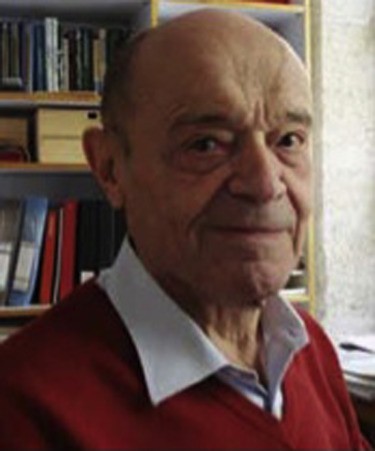
- Details
- Dr John B.P. Stephenson
- News
- Hits: 2501
Jean Aicardi was arguably the greatest child neurologist of the modern era, an internationally renowned French child neurologist who wrote his textbooks in English. His name will live on in the two separate conditions that he described—Aicardi syndrome and Aicardi-Goutières syndrome (AGS). His name will also live on through his several textbooks, all written in English, and through his friends, colleagues, and pupils (over 100 fellows trained with him) throughout the world. Most of his work was done in Paris, but in later years he also held posts in Miami, Florida (as Visiting Scientist), at the Institute of Child Health (as Honorary Professor of Child Neurology), and in Great Ormond Street Hospital (Honorary Consultant Neurologist), London, UK.
Isabelle Rapin, in her report, “The International Child Neurology Association: the First 25 Years” wrote that Jean Aicardi was “one of the most peripatetic child neurologists the world has yet seen, thanks in part to his prowess in multiple languages and to the fact that his retirement from the Hôpital des Enfants Malades in Paris gave him the freedom to serve as Visiting Professor in London, Miami, Sydney and elsewhere and to visit all the continents one or more times during his presidency (of ICNA).”
Jean François Marie Aicardi was born on November 8, 1926, in Rambouillet, 50 km from Paris, the seventh of nine children. As a student at the Lycée Hoche in Versailles, he was “an average student with no burning interest in any particular subject, notably not maths.”1 However, a vague attraction to biology led him to think of medicine as a career.
Despite many difficulties he seems to have become more and more excited by his medical education and finally earned the MD from the University of Paris for his thesis on convulsive disorders in the first year of life.
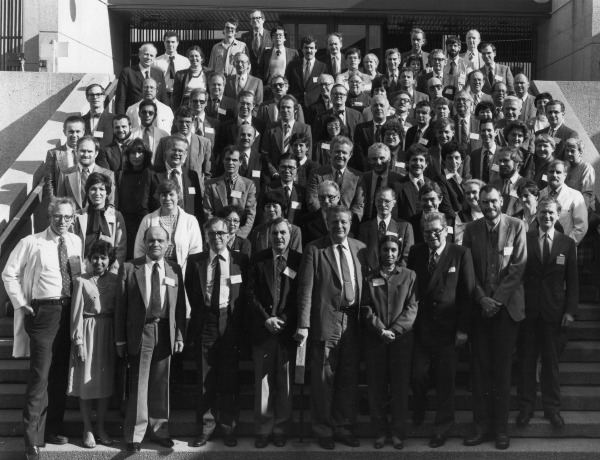 Jean Aicardi (3rd from the left in the front row) at the 1985 Baltimore workshop on Rett syndrome.He was inspired to do neurology by Professor Raymond Garcin and to do child neurology by Professor Stéphane Thieffry. After obtaining his MD he spent an inspirational year as research fellow at Harvard Medical School and the Children's Hospital Medical Center in Boston.
Jean Aicardi (3rd from the left in the front row) at the 1985 Baltimore workshop on Rett syndrome.He was inspired to do neurology by Professor Raymond Garcin and to do child neurology by Professor Stéphane Thieffry. After obtaining his MD he spent an inspirational year as research fellow at Harvard Medical School and the Children's Hospital Medical Center in Boston.
Not only did he get to know people like Cesare Lombroso, but most importantly, he also assimilated North American research methods and their rigor. Thereafter he rejoined Thieffry in Paris in what was to be the first child neurology unit in France and a unit of great productivity over many years, both at Hôpital des Enfants Malades and Hôpital Saint-Vincent DePaul.
However, it was only when Aicardi joined INSERM (Institut National de la Santé et de la Recherche Médicale - National Institute of Health and Medical Research) that his career was assured and he was able to write and to collaborate internationally. At INSERM he was Mâitre de Recherche 1969-1991 and Directeur de Recherche 1986-1991.
Aicardi's best known papers described his two new syndromes. Aicardi syndrome2 and 3 consists of infantile spasms, eye defects—mainly chorioretinal lacunae (white holes) and agenesis of the corpus callosum—and is almost entirely confined to girls. AGS—described with Françoise Goutières,4 with whom he wrote over 60 papers between 1966 and 2007—is best known as an infantile encephalopathy, but has proved to be of extraordinary interest on a wider scale.
The seven genes5 (so far) for AGS are involved in pathways that converge on type 1 interferon, a protein involved in innate immunity. Thus it comes about that AGS resembles both congenital viral infections (including human immunodeficiency virus) and also autoimmune disorders in particular systemic lupus erythematosus.
Rett syndrome was another condition confined to females to which Aicardi made a major contribution.6 Actually, Rett syndrome was rediscovered in many countries in the early 1980s, but it was Bengt Hagberg, Jean Aicardi, and Karin Dias who really put it on the map.6 Then, everyone flocked to Baltimore for the 1985 Rett workshop, and the rest is history.
Aicardi's textbooks have been hugely popular, and both Diseases of the Nervous System in Childhood and Epilepsy in Children have run to three editions, as yet. He was also the founding editor and editor-in-chief of the journal Epileptic Disorders that includes videos of patients to accompany the written word.
His academic honors were numerous, but one should note especially Aicardi's receipt of the Hower Award from the Child Neurology Society in 1986. Of this award he said “I would first like to thank the Child Neurology Society for the honor that it has bestowed on me.I am aware of the prestige which is attached to the Hower Award, and I deeply value this distinction, especially as I realize that it is the first time the award has been given to a non-American child neurologist. In addition to honoring me, the Child Neurology Society wanted to demonstrate that neuro-pediatrics has no geographic, political or linguistic borders, and that the care of neurologically disabled children requires the efforts of all men and women of good will across lands and oceans.”7
Aicardi was a man without hubris. American child neurologist E. Steve Roach wrote recently “I was so impressed by how someone of his stature and accomplishment seemed so modest. I have come to believe, largely from this encounter, that truly accomplished people have no real need to tout themselves: a valuable life lesson for all of us.”
Jean married Jeanne early in his career, and they lived in a flat in Boulevard Beaumarchais, a flat that she made particularly beautiful. Sadly, Jeanne predeceased him.
References:
- Aicardi J (2013) Jean Aicardi: my circuitous path to becoming a French child neurologist and epileptologist. J Child Neurol 28 (3):409-15. DOI: 10.1177/0883073812470212 PMID: 23400630.
- J. Aicardi, J. Lefebvre, A. Lerique-Koechlin. A new syndrome: spasms in flexion, callosal agenesis, ocular abnormalities. Electroencephalogr Clin Neurophysiol, 19 (1965), pp. 609–610 (Abstract)
- Aicardi J, Chevrie JJ, Rousselie F (1969) [Spasma-in-flexion syndrome, callosal agenesis, chorioretinal abnormalities]. Arch Fr Pediatr 26 (10):1103-20. PMID: 4314028.
- Aicardi J, Goutières F (1984) A progressive familial encephalopathy in infancy with calcifications of the basal ganglia and chronic cerebrospinal fluid lymphocytosis.Ann Neurol 15 (1):49-54. DOI:10.1002/ana.410150109 PMID: 6712192.
- Crow YJ, Chase DS, Lowenstein Schmidt J, Szynkiewicz M, Forte GM, Gornall HL et al. (2015)Characterization of human disease phenotypes associated with mutations in TREX1, RNASEH2A, RNASEH2B, RNASEH2C, SAMHD1, ADAR, and IFIH1.Am J Med Genet A 167A (2):296-312. DOI: 10.1002/ajmg.a.36887 PMID: 25604658.
- Hagberg B, Aicardi J, Dias K, Ramos O (1983) A progressive syndrome of autism, dementia, ataxia, and loss of purposeful hand use in girls: Rett's syndrome: report of 35 cases.Ann Neurol 14 (4):471-9. DOI: 10.1002/ana.410140412 PMID: 6638958.
- Aicardi J (1987) The future of clinical child neurology.J Child Neurol 2 (2):152-9. PMID: 3598143.
Acknowledgements:
Article originally published by The Child Neurology Society (USA) and in Pediatric Neurology Volume 54, January 2016,DOI: 10.1016/j.pediatrneurol.2015.09.006
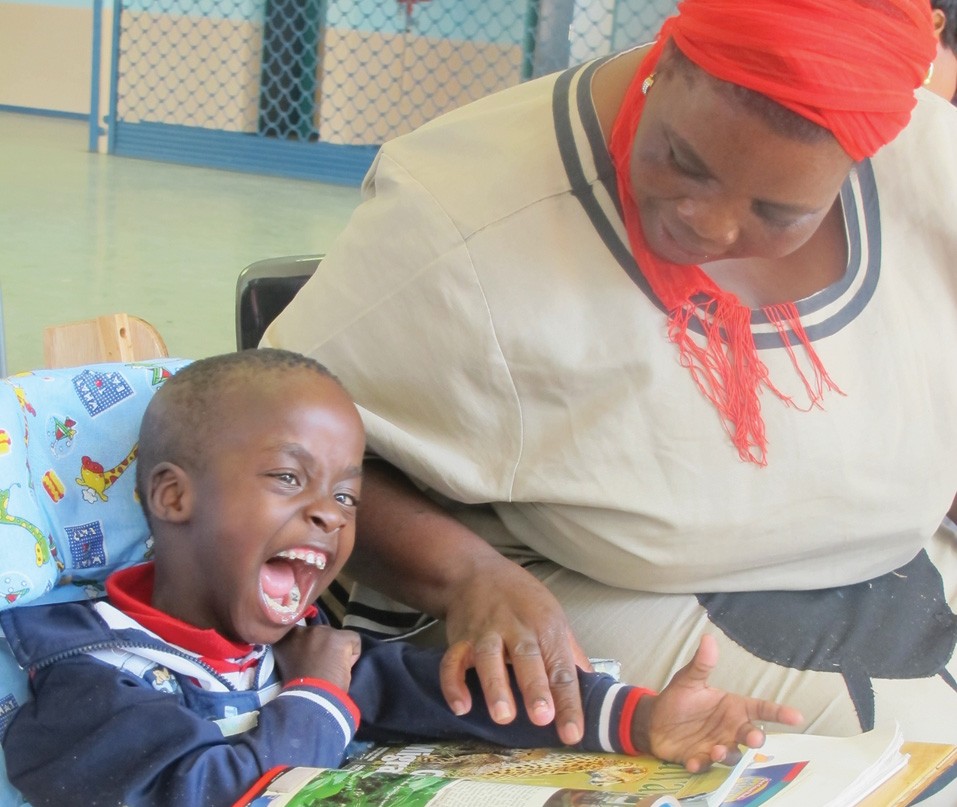
- Details
- ICNA
- News
- Hits: 830
Fighting cerebral palsy in Africa Cerebral palsy aff ects children across Africa. Prevention is difficult since we know little about its aetiology in African countries, and efforts to help those affected are hampered by a lack of resources. But individuals and organisations are rising to the challenge. Adrian Burton reports.
Strengthening links between researchers, clinicians, therapists, and those providing specialist training and care is vital if we are to make headway against CP
In February, 2013, a working group of the African Child Neurology Association met in Cape Town to try to build a picture of CP across the continent, to determine how well equipped diff erent countries are to deal with it, and to identify the steps needed to improve the situation. Its fi ndings reveal the scale of the problem. The delegates, from 22 African nations, reported that a large proportion of children seem to be aff ected through postnatal insults, such as meningitis or cerebral malaria, yet no system of surveillance of at-risk babies was available in nine of these countries. Specialist services were often absent. In some countries, traditional healers were still the fi rst point of contact for medical help, and South Africa and Egypt were the only countries to have any guidelines for managing CP. And while all the countries represented reported physiotherapy to be available, about half could off er no occupational, speech, or language therapy, and many could provide no orthopaedic support.
"And remember, just because a country reports having certain facilities, that does not at all mean they are ubiquitously available or of the best quality", explains Jo Wilmshurst, head of paediatric neurology at the Red Cross War Memorial Children's Hospital. "For example, even in South Africa, the most developed of the nations represented [in the working group], CP can be a huge burden in rural areas, where resources and help can be sorely limited. Indeed, in most African countries, the help available outside the major cities may be minimal. Staffi ng capacity and training are inadequate to support focused disability care, let alone multidisciplinary services, and equipment is typically lacking or outdated."
The delegates agreed that further research was needed to clarify aetiologies and outcomes, and 2 years later the results are beginning to come in. "In Botswana, we recently found perinatal hypoxia (28%), prematurity (21%), postnatal infections (15%), and prenatal TORCH [toxoplasmosis, rubella, cytomegalovirus, and herpes] infections (10%) to be the most common aetiologies", says David Bearden of the Division of Child Neurology, Children's Hospital of Philadelphia, PA, USA, who reported the results of a study of 68 children at the April, 2015, meeting of the American Academy of Neurology in Washington DC, USA. Co-investigator Baphaleng Monokwane, of the Department of Paediatrics, University of Botswana, Gabarone, Botswana, explains that CP was often the consequence of delayed referral to a tertiary hospital. "Unfortunately, we see cases of complicated meningitis due to delays in seeking medical interventions because of traditional beliefs. Addressing this could make a diff erence. In terms of prematurity, we could do a lot by working on prevention."
The same research group also reported that 41% of aff ected children fell into the most severe motor impairment category, while 84% suff ered intellectual disability, 77% had epilepsy, 46% were visually impaired, 16% had hearing problems, 31% had contractures, and 28% showed orthopaedic complications. Refl ecting the delegates' recognition of the need for innovative solutions to maximise access to health care, Bearden emphasises the potential of "appropriate, low-cost, communitybased classes in which we could teach parents basic rehabilitation techniques for these problems. This, in combination with regular check-ups by community health workers, may be better than a system that demands parents regularly bring children to a hospital, which can be very challenging for families in most parts of Africa."
Malamulele Onward, a nongovernmental organisation based at the Children's Memorial Institute, Braamfontein, South Africa, may be ahead of the game in this respect. "Many dedicated therapists and midlevel staff work at hospitals across the continent, but don't have specialised training in CP", explains Gillian Saloojee, the organisation's executive director. "Over the past 9 years, our work with over 700 children and their families in deeply rural areas of South Africa, Lesotho, and Rwanda has shown that a sustainable intervention model not only has to include training for rehabilitation therapists, but also for parents and families, along with the provision and fi tting of postural equipment, hands-on therapy, and regular mentoring visits."
"Parents are an untapped resource in rural areas", adds Misty Weyer, Malamulele Onward's training coordinator, "one that we mobilise through our Carer-2-Carer Facilitator Course or through blocks of residential intensive therapy. We developed the Carer-2-Carer programme ... with 20 parents representing five languages and cultures, and it's now the fi rst CP programme in South Africa to be taught by rural parents themselves. Parents are trained in CP care, shown how to support other parents and facilitate peer-learning, and work in partnership with their local CP clinics. This provides other families [with] access to information about CP in ways they understand, in their own language, from someone living similar experiences."
"We assess our programmes through feedback from the parents, plus annual follow-up visits to the rural hospitals, where we have trained therapists and mid-level workers, and through home visits to children we've treated", explains Saloojee. "As we've learned about the realities of daily life for caregivers and families, the more appropriate our training courses have become. The burden remains huge, but we've seen that the strategies we follow can change the quality of care children with CP receive in rural areas."
Malamulele Onward, however, is not alone in its eff orts. Cerebral Palsy Africa, a non-governmental organisation based in Duns, Scotland, UK, is involved in similar projects in Ghana, Zambia, Malawi, Kenya, and Uganda. "We provide training to rehabilitation workers [involved in] community-based projects, which allows access to children and families and helps win their trust", explains co-founder Archie Hinchcliff e. "In addition, we train specialist therapists in [guaranteed] long-term paediatric employment; this boosts the eff orts of rehabilitation workers, [to] help avoid children developing contractures, and ensures their continued progress. And we help set up self-sustaining workshops in which the workers we train make assistive, supportive devices from waste paper and cardboard available at hospital pharmacies. Using appropriate paper-based technology methods, chairs and standing frames can be made to measure, facilitating each child's development and social participation."
Other organisations are working on the ground too, such as the Cheshire Foundation (Botswana), Benola (Nigeria), Handicap International (Burundi), and the Ronald Trust for Cerebral Palsy and Autism Children (Zimbabwe). The African Paediatric Fellowship Program at the University of Cape Town is also off ering special training for African doctors, nurses, and rehabilitation practitioners. "We've trained doctors in Ghana, Kenya, Tanzania, and Zimbabwe in neurology patient care", explains Wilmshurst, "and training courses have been run in Ghana and Zimbabwe, developing rehabilitation awareness in these regions".
"Strengthening links between researchers, clinicians, therapists, and those providing specialist training and care is vital if we are to make headway against CP", concludes Donald. "Our meeting in Cape Town brought together clinicians often working in isolation who can now support each other. Creating links with organisations like Malamulele Onward can only increase our chances of taking on this problem that makes life so difficult for all who are touched by it. African nations may be hampered by low resource levels for years to come, but by pooling our minds and hearts, and by pulling together, we can begin to make a difference."
Adrian Burton
Burton, A. (2015). Fighting cerebral palsy in Africa. The Lancet. Neurology, 14(9), 876–7. doi:10.1016/S1474-4422(15)00189-1
In memory of Bafokeng Mohamoe March 18, 2010–June 10, 2015
Read More
- Details
- ICNA
- News
- Hits: 2642
The founding father of Turkish Child Neurology, Professor Yavuz Renda (b.1932) has passed away peacefully on the 24th of July, 2015 after a long illness. His family roots aided Mustapha Kemal Atatürk in the construction of Modern Turkey in 1923. Professor Renda established the backbones of our discipline in Turkey starting from early 1960s. This was parallel to the blossoming of Child Neurology worldwide. Professor Renda was a great teacher and a spirit to his pupils. He had deep concerns for the benefit of his patients and their families. He was a considerate man to his colleagues and juniors. We shall deeply miss him. His principles will be followed in generations.
Haluk Topaloglu, Ankara
On behalf of the Turkish Child Neurology Society
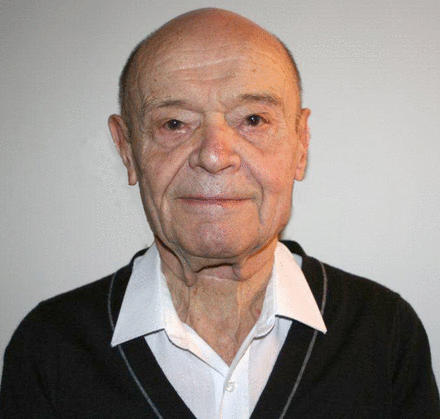
- Details
- ICNA
- News
- Hits: 2719
We are deeply saddened to hear the passing of Professor Jean François Marie Aicardi in Paris. A world-renowned physician and child neurologist, Professor Aicardi had friends, students and patients from all over the world . A true giant of Paediatric Neurology, his passing is indeed a great loss to the world of child neurology and to the countless friends and colleagues all over the world. The International Child Neurology Association express it's deepest condolence on the demise of this truly inspirational Child Neurologist.
Jean François Marie Aicardi studied at the Paris Medical School and became an Interne des Hôpitaux de Paris in 1951. He trained at Hôpital de la Salpêtrière under Raymond Garcin (1897-1971)under Raymond Garcin (1897-1971)and at Hôspital des Enfants Malades in Paris under Stéphane Thieffry. He received his doctorate from the University of Paris in 1955 on convulsive disorders in the first year of life . From 1955-1956 as a research fellow at the Harvard Medical School and the Children's Hospital Medical Center in Bostn. On returning to Paris, Aicardi joined the Department of Infantile Surgery at the Hôpital des Enfants Malades as a Paediatrician, where he remained until 1964 while continuing his interest in child neurology. He then worked as an assistant to Thieffry from 1964 to 1979 in the Department of Child Neurology at the Hôpital Saint Vincent de Paul. In 1968 he joined the Institut National de la Santé et de la Recherche Médicale (INSERM). He returned with his team to the Hôpital des Enfants Malades in 1979 to create and run a new unit of child neurology.
In 1970 Aicardi was invited to Oxford, England, by Ronald MacKeith (1908-1977) in order to participate in the first meeting of the European Study Group in Child Neurology, an exclusive group of The Spastics Society, an organisation that has played an important role in the development of child neurology in Europe. This group became the European Federation of Child Neurology Societies in 1973 and has branches in most European countries. Following his retirement in 1991, Jean Aicardi was appointed honorary professor of child neurology at the Institute of Child Health and honorary consultant at the Hospital for Sick Children, London. In March 1999 he became the founding editor of the journal Epileptic Disorders.
Aicardi was awarded the Cornelia de Lange Medallion from the Dutch Society of Child Neurology in 1985 and the Hower Award from the American Child Neurology Society in 1986. In 1995 he received the Epilepsy research Award from the American Epilepsy Society. Professor Aicardi is known throughout the world through his encyclopaedic text books and scientific works. He has authored more than 250 original papers which deals with childhood epilepsy, while many are devoted to brain malformations, progressive encephalopathies, and other aspects of child neurology.
Biography source: Aicardi, J. (2013). Jean Aicardi: my circuitous path to becoming a French child neurologist and epileptologist. Journal of Child Neurology, 28(3), 409–15. doi:10.1177/0883073812470212 J_Child_Neurol-2013-Aicardi-409-15_b640f.pdf
Also see:
Krägeloh-Mann I, Board of the Society of Neuropediatrics (2015) Prof. Jean François Marie Aicardi (1926-2015). Neuropediatrics ():. DOI: 10.1055/s-0035-1566445 PMID: 26535874.
Stephenson J, Professor Jean Aicardi (1926-2015) https://www.childneurologysociety.org/about/in-memoriam/professor-jean-aicard